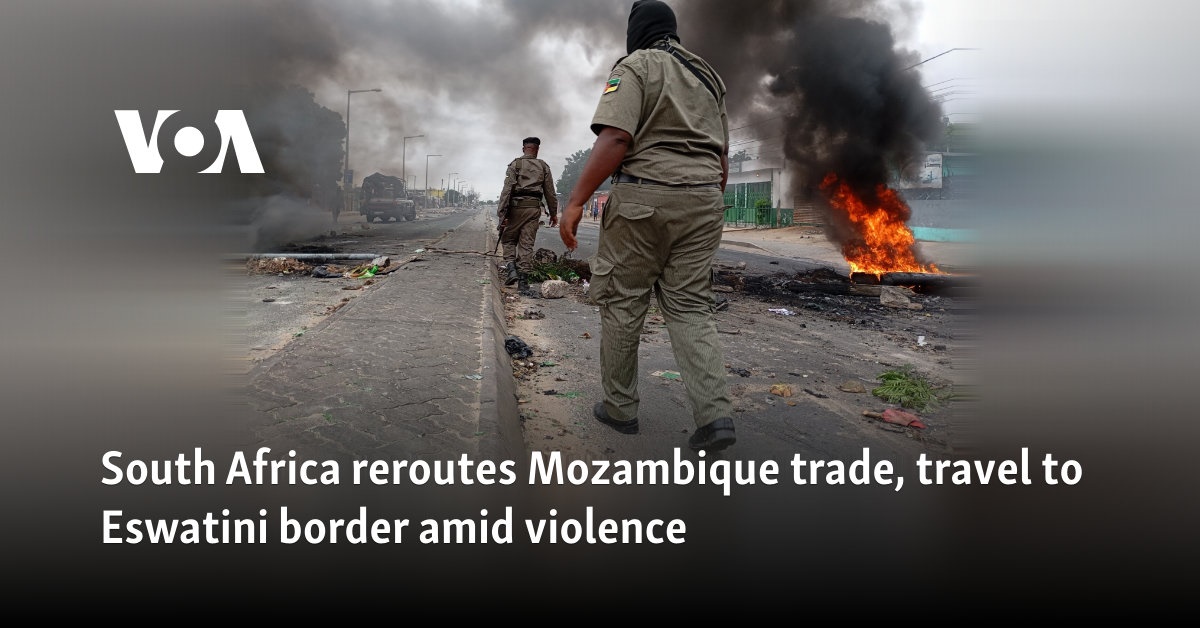As Mozambique grapples with a political crisis following a disputed national election and violent protests, the situation at its southern border with South Africa is increasingly volatile, affecting trade and travel.
The violence in Mozambique forced trade and travel to be diverted from South Africa’s Leebombo Border Post to Eswatini’s Mananga Border Post, with Mananga serving as a makeshift lifeline for those seeking passage from Mozambique.
Michael Masiapato, commissioner of South Africa’s Border Management Authority, told VOA that although authorities are managing the crisis, it continues to pose significant challenges.
“Even … when they deploy the military and when they deploy police officers on the corridor [between the capital, Maputo, and the border], it is not able to cover each and every area,” he said.
The protests, he said, are “very much sporadic” and “very much widespread.”
Following presidential candidate Daniel Chapo’s controversial election victory Monday, Mozambique plunged into turmoil, leaving scores dead amid violent protests.
Some analysts expressed concern that continued political violence could destabilize regional security and impede economic development, sparking weapons proliferation and criminal activity.
Solomon Mondlane, a political analyst in Mozambique, told VOA he is cautiously optimistic that South African and European efforts can help calm the situation.
“The situation is volatile,” Mondlane said. “The good news is we’re hearing more calls from different countries — from South Africa, from other European countries — calling for more dialogue. South Africa has come out to say they are willing to facilitate a dialogue.
“We know that South Africa’s ANC-led government has been in support of Frelimo,” the ruling political party,” he said. “They were the first to congratulate Frelimo for winning these rigged elections. But we are happy that they are adhering to the calls now to say we are willing to facilitate dialogue between the opposition in Mozambique and the ruling party.”
Levy Ndou, a South African political analyst and lecturer at Tshwane University of Technology in Johannesburg, said he believes regional players’ efforts at dialogue with the Mozambican government are encouraging signs that many in the region are seeking peace and stability.
“Of course, if the situation gets out of hand, it will therefore require the intervention of SADC in order to ensure that there is peace, there is stability and, indeed, there is economic activity that is going on,” Ndou said, referring to the Southern African Development Community.
Zimbabwean President Emmerson Mnangagwa, the SADC chair, has said the regional bloc is ready to assist Mozambique.











